Comprehensive Guide to Assisting the Elderly: Services, Support, and Resources
Key Takeaways Watching a loved one struggle with daily tasks that were once effortless can be both heartbreaking and overwhelming…
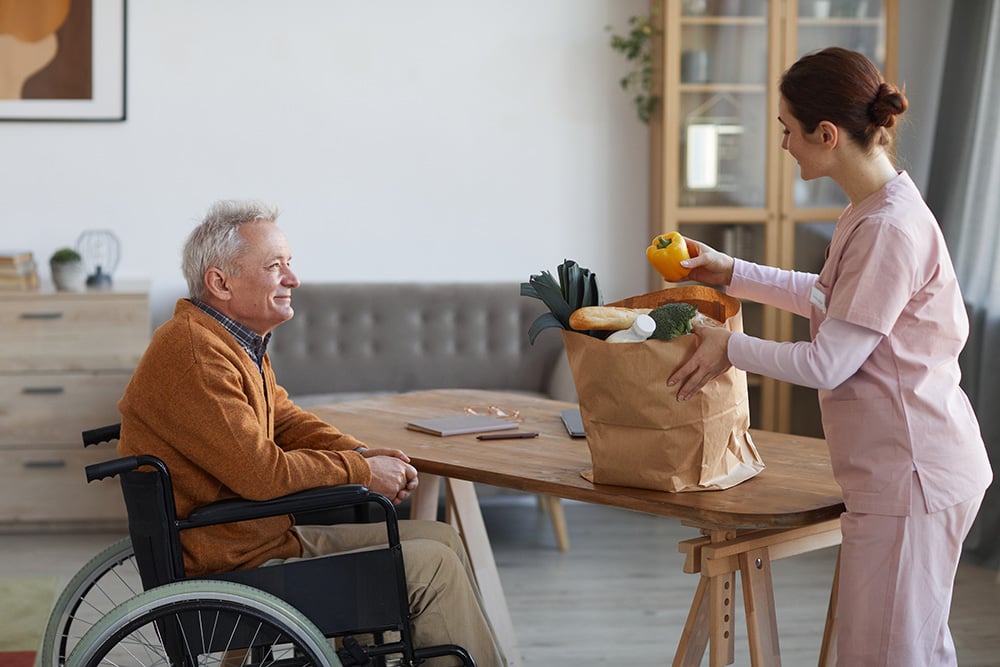
Key Takeaways
- Professional in-home care services enable seniors to age safely and comfortably in their own homes while maintaining independence and dignity
- Multiple assistance programs exist including food assistance, Medicare benefits, and specialized dementia care tailored to individual needs and circumstances
- Family caregivers can access respite care and support services to prevent burnout while ensuring quality care for their loved ones
- Transportation, companionship, and daily living assistance are core services that significantly improve seniors’ quality of life and safety
- Government programs like SNAP, SFMNP, and Medicare Advantage provide financial assistance for food, healthcare, and essential services
Watching a loved one struggle with daily tasks that were once effortless can be both heartbreaking and overwhelming for seniors and thei families across the country. The good news is that assisting the elderly doesn’t mean sacrificing their independence or forcing them into home care or retirement communities. Here in Western NC we have amazing and caring Retirement Communities for loved ones to live in and THRIVE IN. Today’s comprehensive support services allow older adults to thrive in their own homes while receiving the help they need to live safely and comfortably.
Whether you’re noticing that your aging parent needs a little help with grocery shopping, medication management, or personal care, understanding your home care options can provide peace of mind for everyone involved, especially for older adults . From professional caregivers who become trusted team members to local aging agencies that help with daily expenses, there’s a wealth of resources available to support seniors and their families through this important life transition.
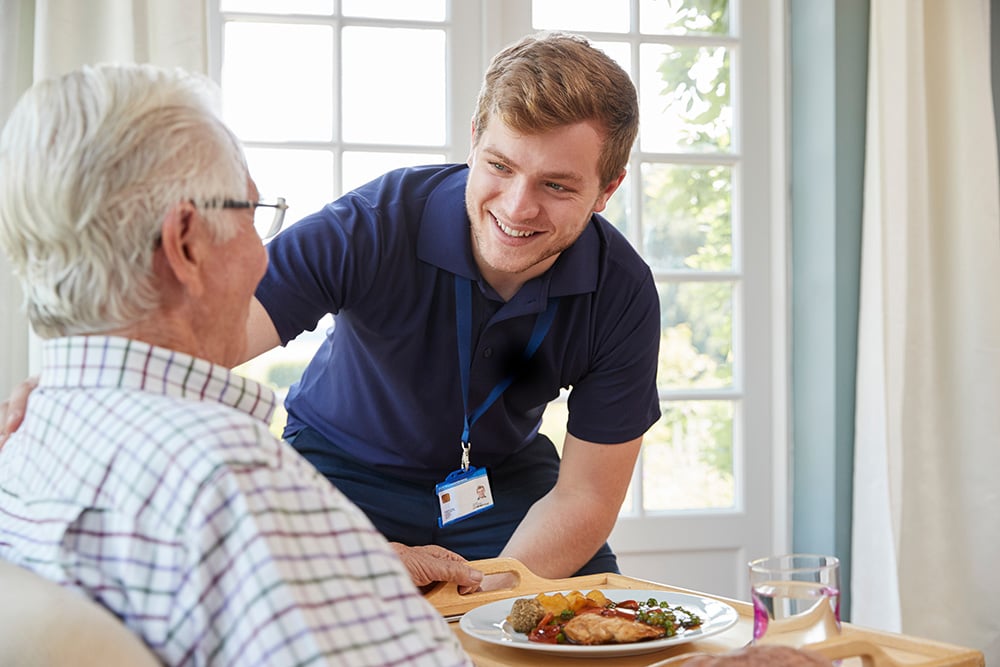
Understanding Professional In-Home Care Services
Professional in-home care represents a comprehensive approach to assisting the elderly while allowing them to remain in familiar surroundings. These services encompass personal hygiene assistance, medication management, health monitoring, and companionship – all delivered by trained professionals who understand the unique needs of aging clients.
The benefits of aging in place extend far beyond simple cost considerations, as it significantly reduces the risk of emotional distress for senior . While nursing home care can cost thousands of dollars monthly, in-home services often provide better value while preserving the emotional comfort of familiar surroundings. Seniors who receive care in their own homes typically experience better mental health outcomes, maintain stronger connections to their communities, and enjoy greater control over their daily routines.
Personalized care plans begin with comprehensive home safety assessments conducted by experienced professionals. These evaluations identify potential risks, assess the senior’s current abilities, and develop strategies that maximize independence while ensuring safety. Care managers work closely with families to understand medical conditions, personal preferences, and cultural considerations, and their knowledge helps shape the caregiving approach.
The caregiver matching process considers far more than basic qualifications. Successful matches take into account personality compatibility, shared interests, language preferences, and specific experience with the senior’s medical conditions. Many families find that the right caregiver becomes not just a service provider, but a trusted partner an companion who brings joy and engagement to their loved one’s day.
For seniors requiring continuous supervision, 24/7 care options provide around-the-clock assistance without the institutional setting of a nursing home. These arrangements include overnight assistance, emergency response protocols, and coordination with healthcare providers to ensure seamless care transitions that ensure comfort when health needs change.
Essential Daily Living Assistance
Daily living assistance forms the foundation of most elder care plans, addressing the activities that enable seniors to maintain their autonomy and dignity. Personal care services include bathing assistance that prioritizes well-being and privacy, with caregivers trained to prevent falls while respecting the senior’s comfort level and personal routines.
Dressing support goes beyond simply helping with buttons and zippers. Professional caregivers understand the importance of weather-appropriate clothing, comfortable fabrics, and maintaining the senior’s personal style preferences. This attention to detail helps preserve identity and self-esteem during what can feel like vulnerable moments.
Meal planning and preparation services address one of the most critical aspects of senior health. Caregivers can accommodate dietary restrictions, ensure proper nutrition, and prepare meals that are both appetizing and safe for seniors with swallowing difficulties or other medical considerations. Many families are surprised to learn how much their loved one’s appetite and energy improve with proper nutrition support, contributing to a happy and healthier lifestyle .
Light housekeeping tasks extend far beyond basic cleaning. These home services help maintain a safe, organized environment where seniors can navigate confidently. From managing laundry to organizing medications, these seemingly simple tasks can make the difference between self-reliance and unnecessary institutional care.
Medication reminders and management prevent dangerous drug interactions while ensuring seniors stay on track with their treatment plans. Professional caregivers are trained to recognize side effects, coordinate with healthcare providers, and maintain detailed records that help families and medical teams monitor the senior’s health status.
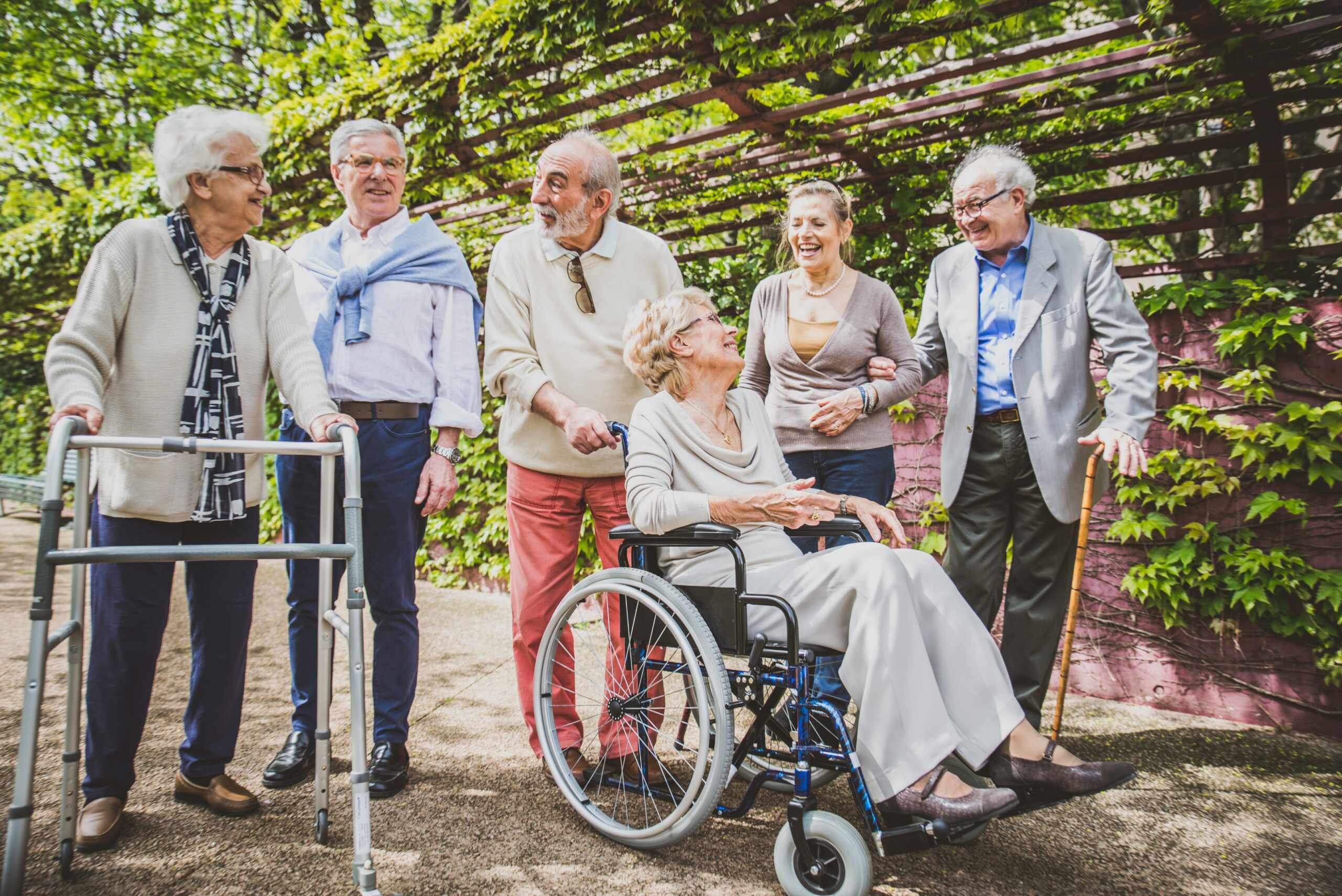
Transportation and Mobility Support
Transportation challenges often mark the beginning of social isolation for seniors, making mobility support a crucial component of comprehensive elder care. Medical appointment transportation ensures that seniors never miss critical healthcare visits, with caregivers who can provide transportation in the family’s vehicle or arrange for accessible transportation options.
Grocery shopping and errands assistance allows seniors to maintain their routines and preferences while ensuring they have access to fresh food and essential supplies. Many caregivers accompany seniors on these outings, providing both practical assistance and social interaction that helps combat loneliness and depression.
Social outings and recreational activities play a vital role in maintaining mental health and cognitive function. Whether it’s attending religious services, visiting friends, or enjoying hobbies, transportation support helps seniors stay connected to the activities and people that bring meaning to their lives.
Adaptive equipment recommendations can significantly improve home mobility and peace of mind. Professional caregivers are trained to identify when grab bars, ramps, or other modifications might help, and they can coordinate with occupational therapists to ensure proper installation and training.
Coordination with physical therapy and rehabilitation services ensures that seniors receive comprehensive care that addresses both immediate needs and long-term health goals. This integrated approach often leads to better outcomes and can help prevent future hospitalizations or injuries.
Specialized Care for Dementia and Alzheimer’s
Caring for seniors with dementia requires specialized knowledge and approaches that go far beyond basic companionship. Evidence-based programs like the Positive Approach™ to Care and Senior Gems™ program provide structured frameworks for understanding and responding to the unique needs of individuals with cognitive impairment.
Memory care techniques focus on establishing predictable routines that reduce anxiety and confusion. Professional caregivers trained in dementia care understand how to break down complex tasks into manageable steps, use visual cues effectively, and create environments that promote success rather than frustration.
Risk-Free modifications for homes housing seniors with dementia go beyond standard elder-proofing to enhance peace of mind. These might include door alarms to prevent wandering, medication locks to prevent accidental overdoses, and removal of potentially dangerous items while maintaining a homelike atmosphere that doesn’t feel institutional.
Family education and support represent crucial components of dementia care. Understanding disease progression, learning effective communication strategies, and developing realistic expectations can significantly reduce caregiver stress while improving outcomes for the person with dementia.
Professional caregiver training requirements for dementia-specific care ensure that families receive knowledgeable, compassionate support. Many agencies require specialized certification and ongoing education to ensure their team stays current with best practices in memory care.
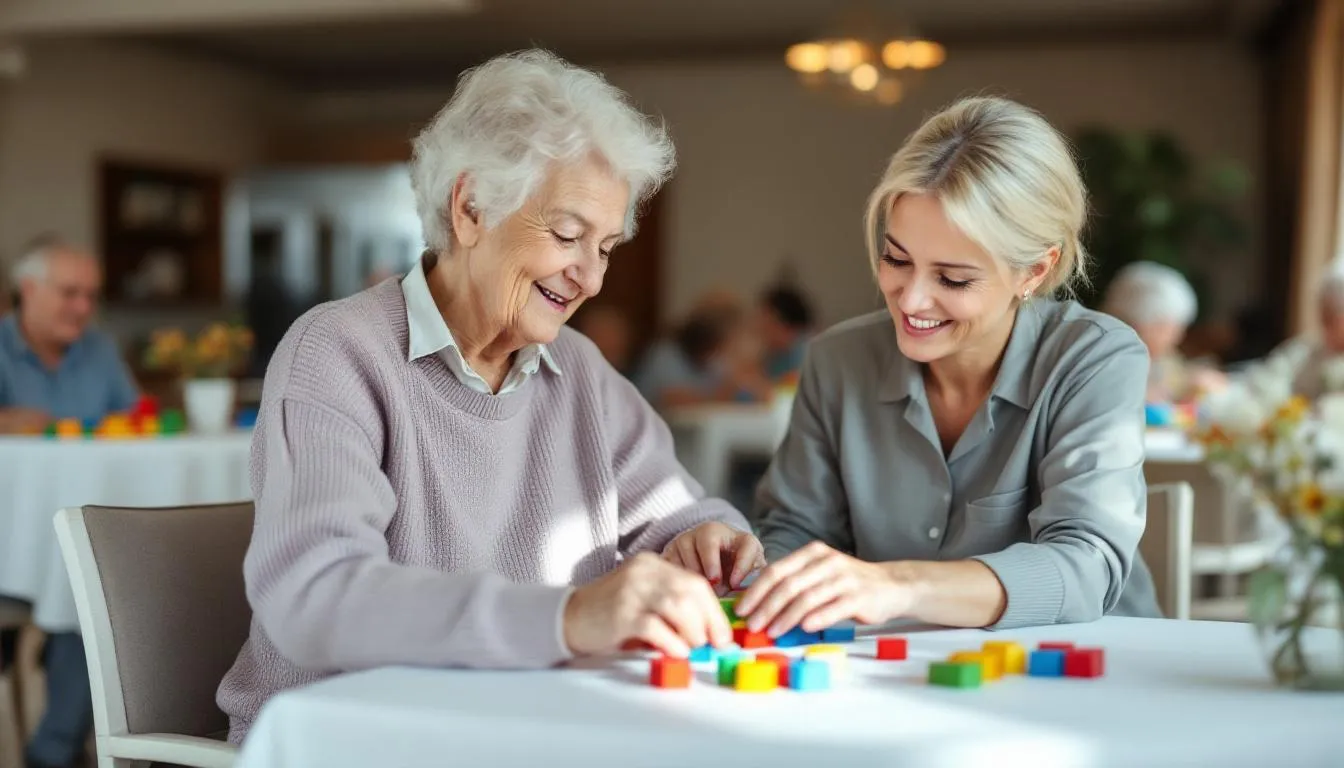
Family Caregiver Support and Respite Care
Family caregivers provide the majority of care for older adults in this country, but they need support to sustain their efforts without sacrificing their own health and well-being. Respite care services offer temporary relief that allows family caregivers to join their loved ones in attending to their own needs, work responsibilities, or simply take a break from the demanding nature of caregiving.
Educational resources and training help family members develop the skills and knowledge they need to provide safe, effective care. These programs cover topics like safe transfer techniques, medication management, and recognizing signs of medical emergencies, empowering families to feel confident in their caregiving roles.
Support groups and counseling services address the emotional challenges that family caregivers face. Many families find that connecting with others in similar situations provides valuable perspective, practical tips, and emotional support that helps them continue caring for their loved one while maintaining their own mental health.
Emergency backup care plans ensure that seniors receive consistent care even when primary family caregivers become unavailable due to illness, work emergencies, or other unexpected circumstances. These plans typically involve pre-arranged relationships with professional care providers who can step in quickly when needed.
Care coordination between family members and professional services prevents gaps in coverage while avoiding duplication of efforts. Professional care managers can help families develop schedules, communicate effectively, and make decisions that benefit everyone involved in the senior’s care team.
Choosing the Right Care Provider
Selecting a care provider requires careful evaluation of qualifications, experience, and fit with your family’s needs and expectations. Essential questions include inquiries about licensing, insurance coverage, background check policies, and specific experience with your loved one’s medical conditions or care needs.
Cost comparison between different providers should include more than hourly rates. Consider whether agencies charge for travel time, minimum hour requirements, holiday rates, and cancellation policies. Understanding these details upfront prevents surprises and helps you budget effectively for ongoing care.
Evaluating caregiver qualifications means looking beyond basic certifications to understand training specific to your loved one’s needs. For example, caregivers working with seniors who have diabetes should understand blood sugar monitoring, while those caring for individuals with dementia need specialized training in communication and behavioral management.
Reading reviews and checking references from other support network provides valuable insights into how agencies handle challenges, communicate with families, and maintain consistency in their services. Don’t hesitate to ask for references from friends with similar care needs or circumstances.
Trial periods and service guarantees offered by reputable care companies allow families to evaluate compatibility before making long-term commitments. Look for agencies that offer satisfaction guarantees and are willing to adjust care plans based on your experience and feedback.
Technology and Innovation in Elder Care
Modern technology offers unprecedented opportunities to enhance safety and independence for seniors aging in their own homes, paving the way for a promising future . LIFE Profile technology and similar systems provide continuous health monitoring that can detect changes in activity patterns, sleep quality, and other indicators that might signal developing health issues.
Medical alert systems and emergency response devices have evolved far beyond simple pendant alarms. Today’s systems can detect falls automatically, provide GPS location aid for seniors who wander, and connect users to emergency services or loved ones members with the push of a button.
Telehealth communications have transformed how seniors access healthcare, particularly benefiting those with mobility limitations or transportation challenges. These platforms allow seniors to consult with doctors, specialists, and other healthcare providers from the comfort of their own homes, often leading to better medication adherence and earlier intervention for health problems.
Smart home modifications can automate many aspects of daily living while enhancing safety. Automated lighting systems prevent falls in dark hallways, programmable thermostats ensure comfortable temperatures, and smart security systems provide peace of mind for both seniors and their families.
Medication management apps and electronic pill dispensers address one of the most common safety concerns for seniors living independently. These systems can provide reminders, track adherence, and alert clients’ trusted circle or healthcare providers when medications aren’t taken as prescribed.
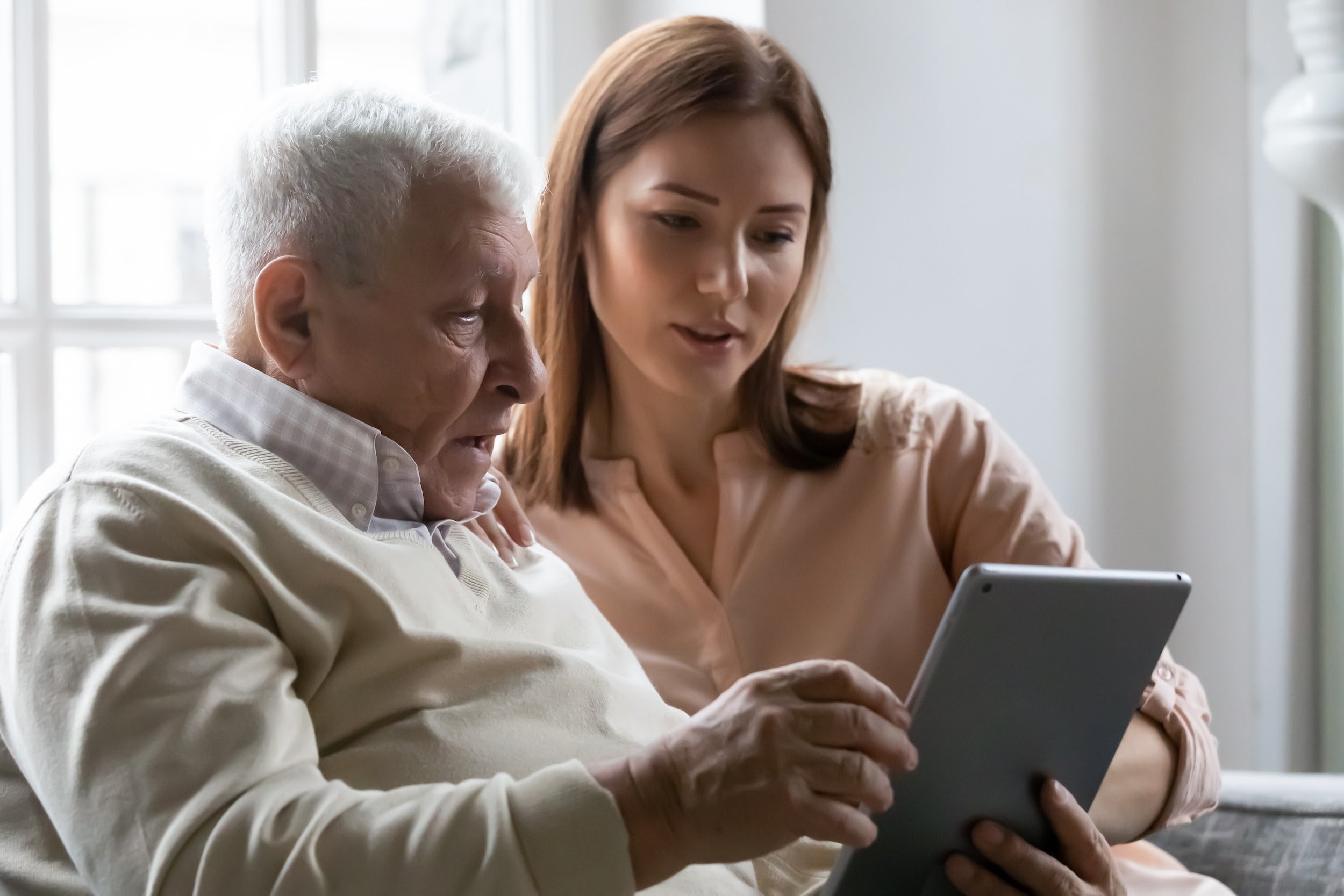
Financial Planning for Elder Care
Long-term care insurance options vary widely in coverage and cost, but policies that include in-home care benefits can provide significant financial protection. Understanding what care related resources are covered, waiting periods, and benefit limits helps cherished ones make informed decisions about their future regarding whether these policies make sense for their situation.
Medicaid waiver programs in many states allow qualifying seniors in our nation to receive in-home care instead of nursing home placement. These programs recognize that home-based care often costs less than institutional care while providing better outcomes for many seniors.
Private pay options and flexible payment arrangements with care providers can make professional care more accessible for loved ones who don’t qualify for government assistance, allowing families to contact providers easily . Many agencies offer sliding scale fees, package deals, or other arrangements that help families manage costs while ensuring their loved one receives needed care.
Tax deductions and credits available for elder care expenses can provide significant savings for families, contributing to their overall happy experience in caregiving . The Dependent Care Credit, medical expense deductions, and other tax benefits can help offset the cost of professional care businesses and medical expenses.
Frequently Asked Questions
How do I know when my elderly parent needs professional assistance at home, so I can better schedule caregivers accordingly ?
Carolina Living Choices staff have aging parents so we understand first hand about this concern. We encourage all relatives to get involved and visited their loved one. Having multiple connections visit and discuss amongst themselves what they are witnessing with their loved one is very beneficial. It can assist to see warning signs include frequent falls, missed medications, poor hygiene, social isolation, confusion about familiar tasks, and difficulty managing finances. A professional assessment can help determine the appropriate level of care needed. Other indicators include unopened mail, spoiled food in the refrigerator, and withdrawal from previously enjoyed activities.
What’s the difference between a certified home health aide and a companion caregiver?
Certified home health aides can provide medical care like wound care, medication administration, and physical therapy assistance, while companion caregivers focus on non-medical support like meal preparation, housekeeping, and social interaction, making them an ideal partner in caregiving . Home health aides typically require more extensive training and certification, while companion caregivers excel at providing emotional support and assistance with daily activities. Our office manager recently shared her tips in a blog article about “Caring from a Distance: Supporting Aging Parents When You Live Far Away.”
Can Medicare or Medicaid pay for in-home care ?
Medicare covers skilled nursing and therapy services when medically necessary but not custodial care. Some state Medicaid programs offer waiver assistance for in-home care as an alternative to nursing home placement for qualifying low-income seniors. Veterans may also qualify for benefits through the VA’s Aid and Attendance program.
How much advance notice do I need to arrange emergency care for my elderly parent?
Most reputable agencies can provide emergency care within 24-48 hours, though same-day service may be available for urgent situations. It’s best to establish a relationship with a provider before emergencies arise. Having a care plan in place ensures faster response times when urgent needs develop.
What safety modifications should I make to my parent’s home before care begins?
Essential modifications include removing trip hazards, installing grab bars in bathrooms, improving lighting, securing loose rugs, organizing medications safely, and ensuring easy access to emergency contacts and medical information. Professional caregivers can also recommend specific modifications based on your parent’s mobility and safety needs.






